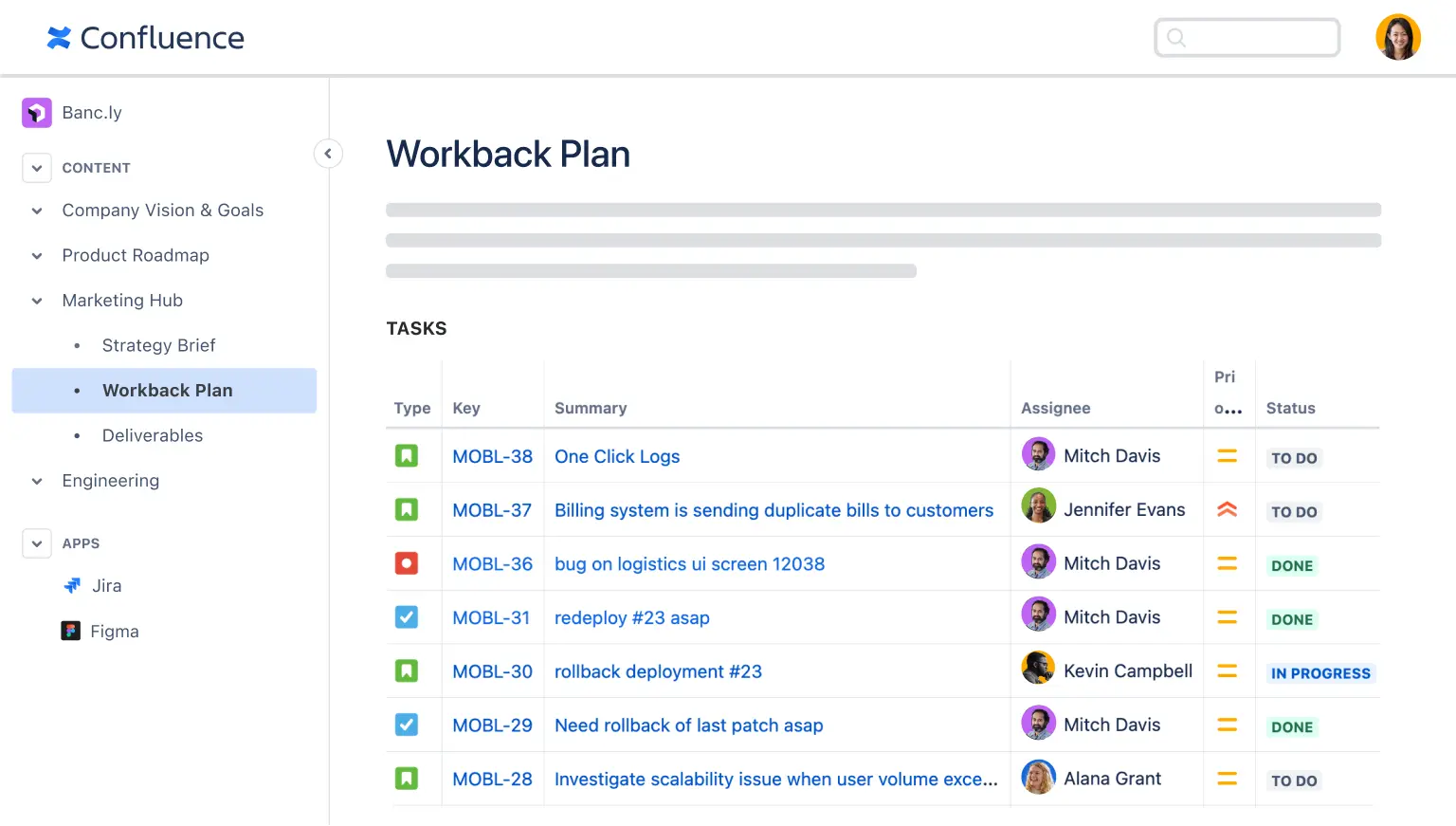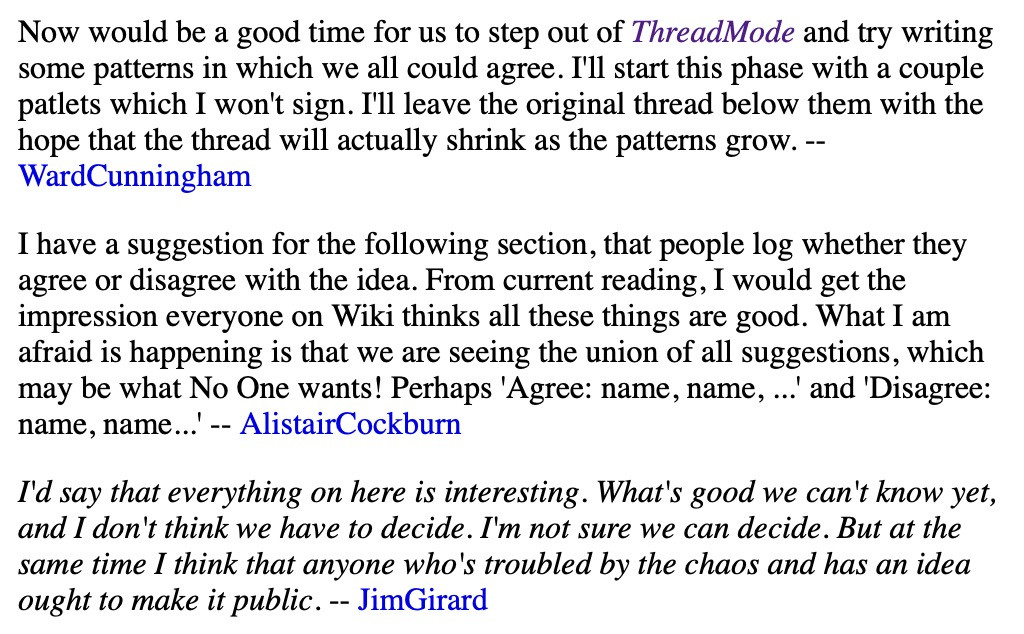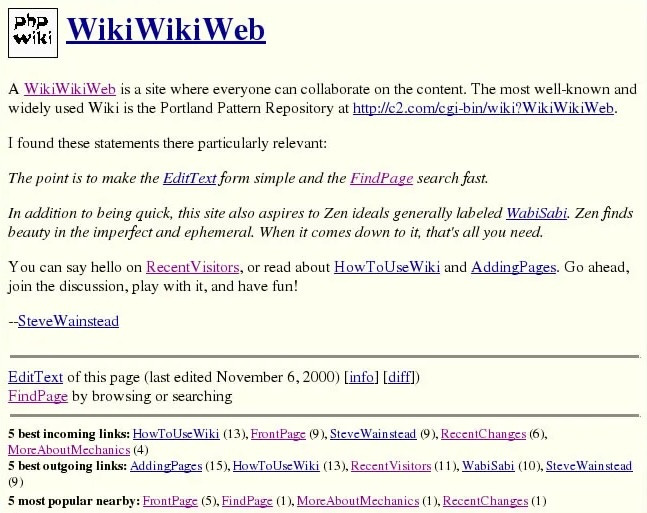If you ask someone today what’s a “Wiki”, they’re likely to point to Wikipedia, and maybe to some fandom wiki like the Star Wars fan site Wookiepedia. That’s probably it for about 75% of people.
A great majority of the remainders are probably familiar with “Wikis” from work, the so-called “corporate wikis”. The big behemoth on the scene being Atlassian’s Confluence, but there’s a plethora of other collaborative documentation web applications.

Now let me present my main argument: Calling all those “wikis” is more historical, than factual.
Just the facts, ma’am #
The original “WikiWikiWeb” was created by Ward Cunningham in 1995. He created it on the then-new world wide web to talk about programming patterns1, which makes this one of the most mid-90s endeavors possible.
His goal was to have a web site where pages could be quickly added and edited. This might seem trivial today, but back then we didn’t have the luxury of What You See Is What You Get editors, like what I’m using right now to edit this very article. You didn’t even have a decent markup language. All you got is a basic text edit control in your web browser as a form, and Ward built something quite magical on top of that–it really was very fast, which is why he named it after a very fast bus, or in Hawai’ian: the Wiki-Wiki Bus2.
He did it with a very minimalistic approach:
-
Every page had an “edit” link on it, and when you clicked that, you got a HTML text edit form with the page contents in it.
-
Those contents weren’t the underlying HTML of the early web, but an early form of markup text, that allowed you to easily create e.g. paragraphs, lists and most importantly: links.
To do the latter, all you needed to write were words that started with an uppercase letter and then had at least another one within them, e.g. MySecondPage or ShoppingList. That created a link to that page, and if it didn’t exist you were immediately in edit mode and could add that.
If I’m not mistaken, early on there were no user accounts or anything like that, anyone could edit and append to existing pages. This then quickly lead into something called thread mode, where the page didn’t look like a unified newspaper or blog article, but the editing add ons were visible. Often marked with a link to the comment author’s personal page as some kind of signature

Where did it all go wrong? #
The original wiki was wildly successful. The 90s-web didn’t have good support for editing the text of the pages, and thus this approach was copied many-fold. It probably didn’t hurt that it was very easy to implement, and so writing your own wiki engine to show off your favorite web development language was quite common, like writing blog engines in later decades3.

One of those engines was UseMod Wiki, written in Perl, God’s own programming language. Which was used to create a small online encylopedia, an user-editable alternative to CD-ROM-based Microsoft Encarta or those leather-bound outdated-at-print books your mom bought for way too much money4. If you want to see how that looked, of course someone is keeping a quasi-copy around.
Wikipedia got big. Which is good-good. Of all the sites on the internet, it would probably have the biggest actual impact if it were to vanish totally. We could find our entertainment elsewhere, but the sheer information density of it is unmatched.
But this scale had its price: You couldn’t have weird links like AmericanRevolutionaryWar for quick writing, and thus markup complexity grew5. And everyone editing every page didn’t work out, either, “edit wars” became a thing and thus editorial control just had to be gatekept more and more.
Guess “pedias” would be a bad name #
And that’s my conclusion here: Every “wiki” out there you see owes way more to late-stage Wikipedia than its original incarnation or even the preceding true wikis.
I just wish we could’ve kept the wiki-wiki spirit around.
-
For those not in the know, because you’re either not programmers or in some functional programming ivory tower, there was a 1994 book called “Design Patterns” that tried to find common approaches to software development, cataloguing and naming them. It’s thus responsible for more wasted keypresses than YouTube comments, resulting in code that could’ve been getEmptyPage being a EmptyPageStrategyFactoryImplementation instead. ↩︎
-
If I’m not mistaken, wiki is “fast”, and doubling it to wiki-wiki makes it “very fast”. I’m sad that more languages don’t have this neato-neato linguistic feature. ↩︎
-
Or whatever kids these days let LLM’s do for them. ↩︎
-
Thanks, mom. Along with my first 286, those were probably the most influential materialistic items for who I am now. ↩︎
-
For a bit of “fun”, have a look at how the page describing all the incarnations of some random hard rock band looks like “under the hood”. ↩︎